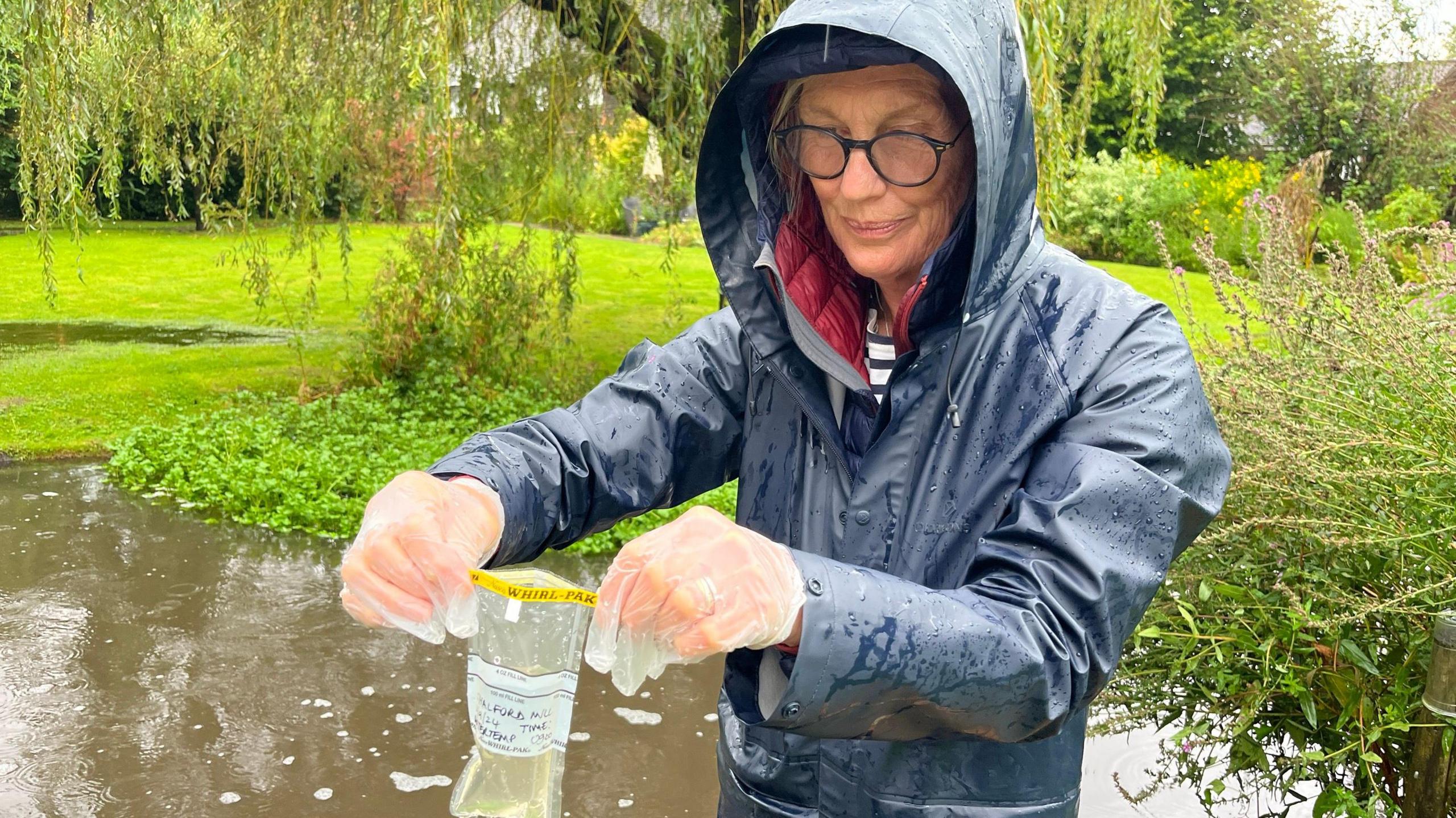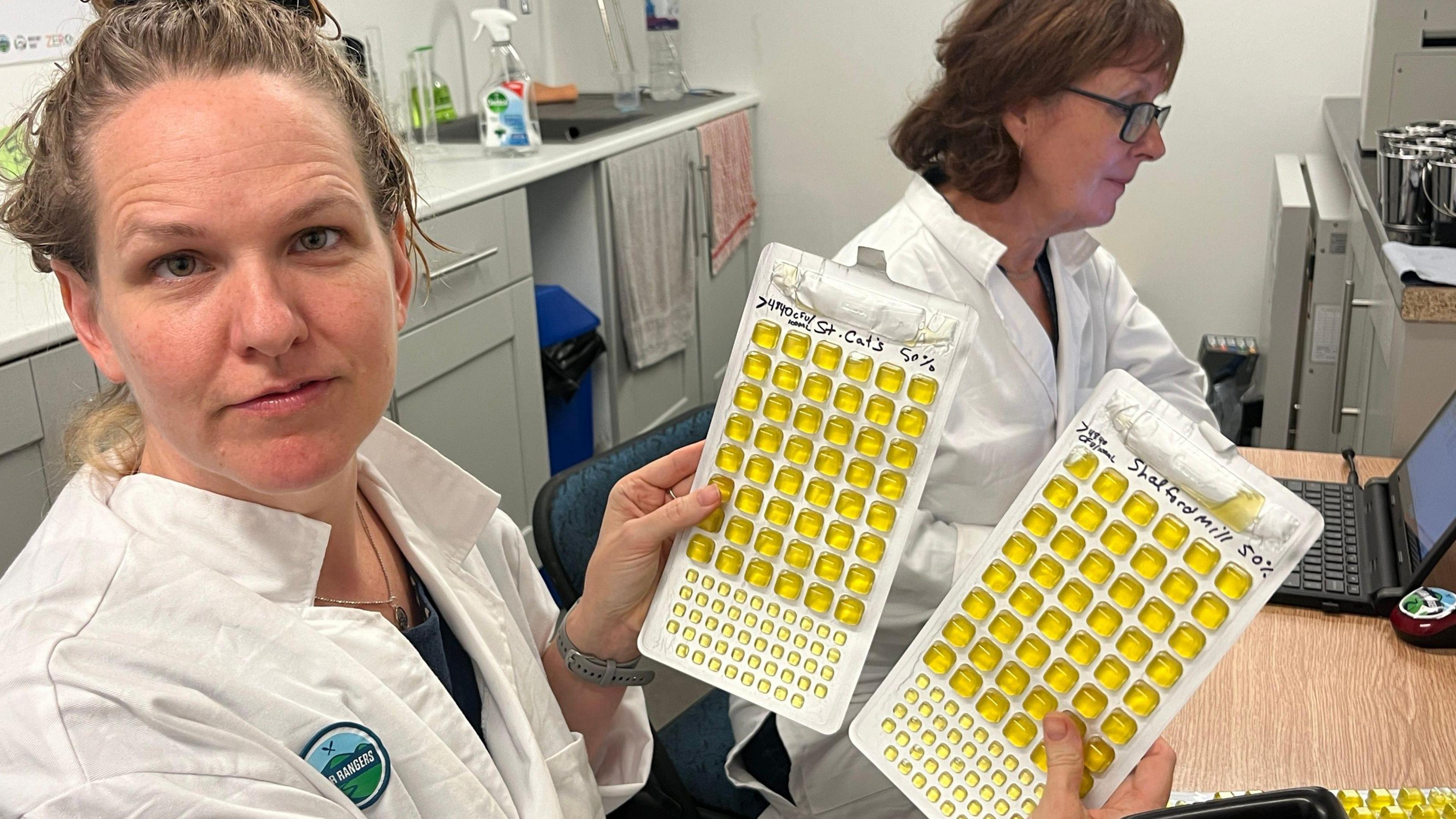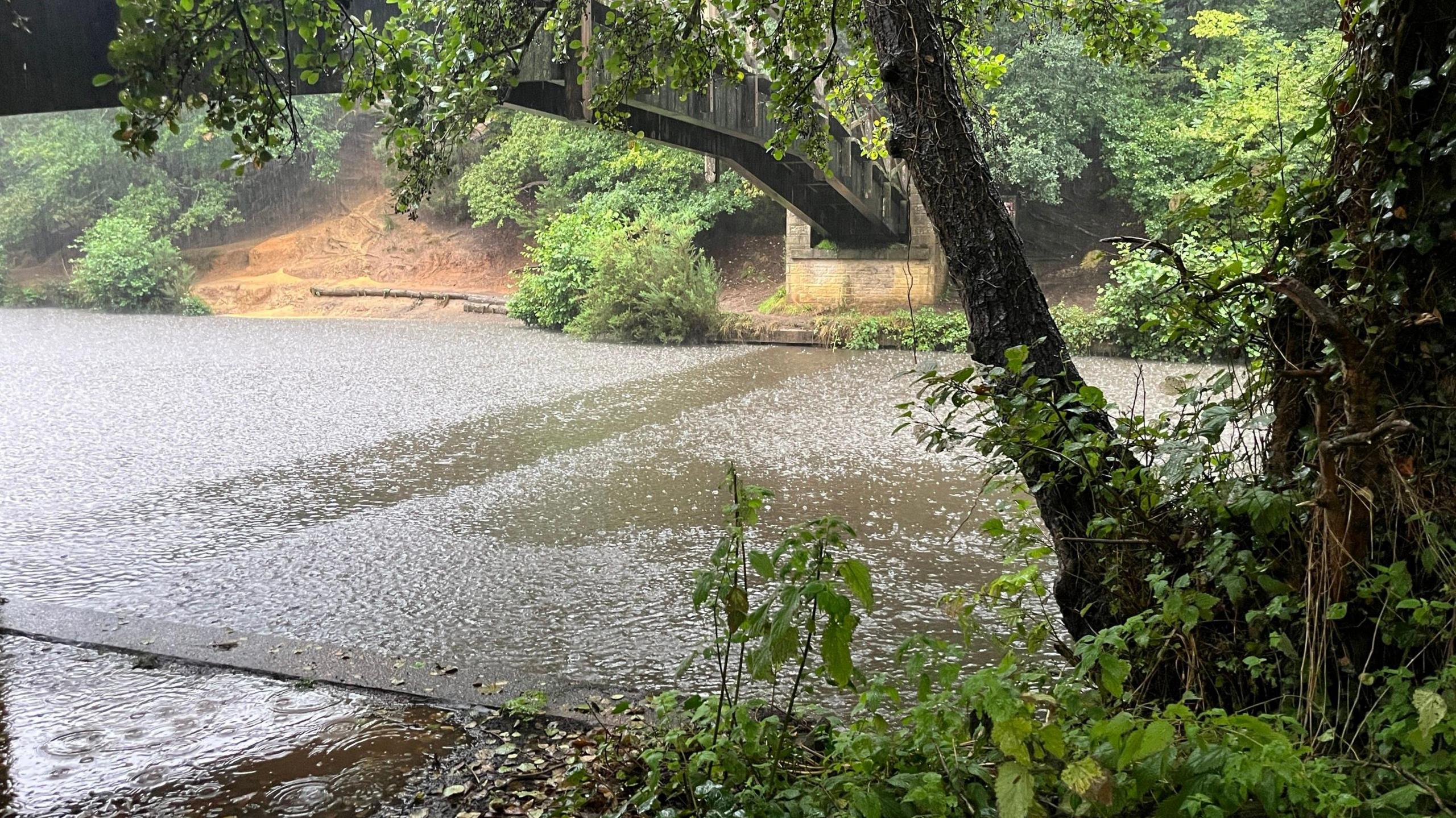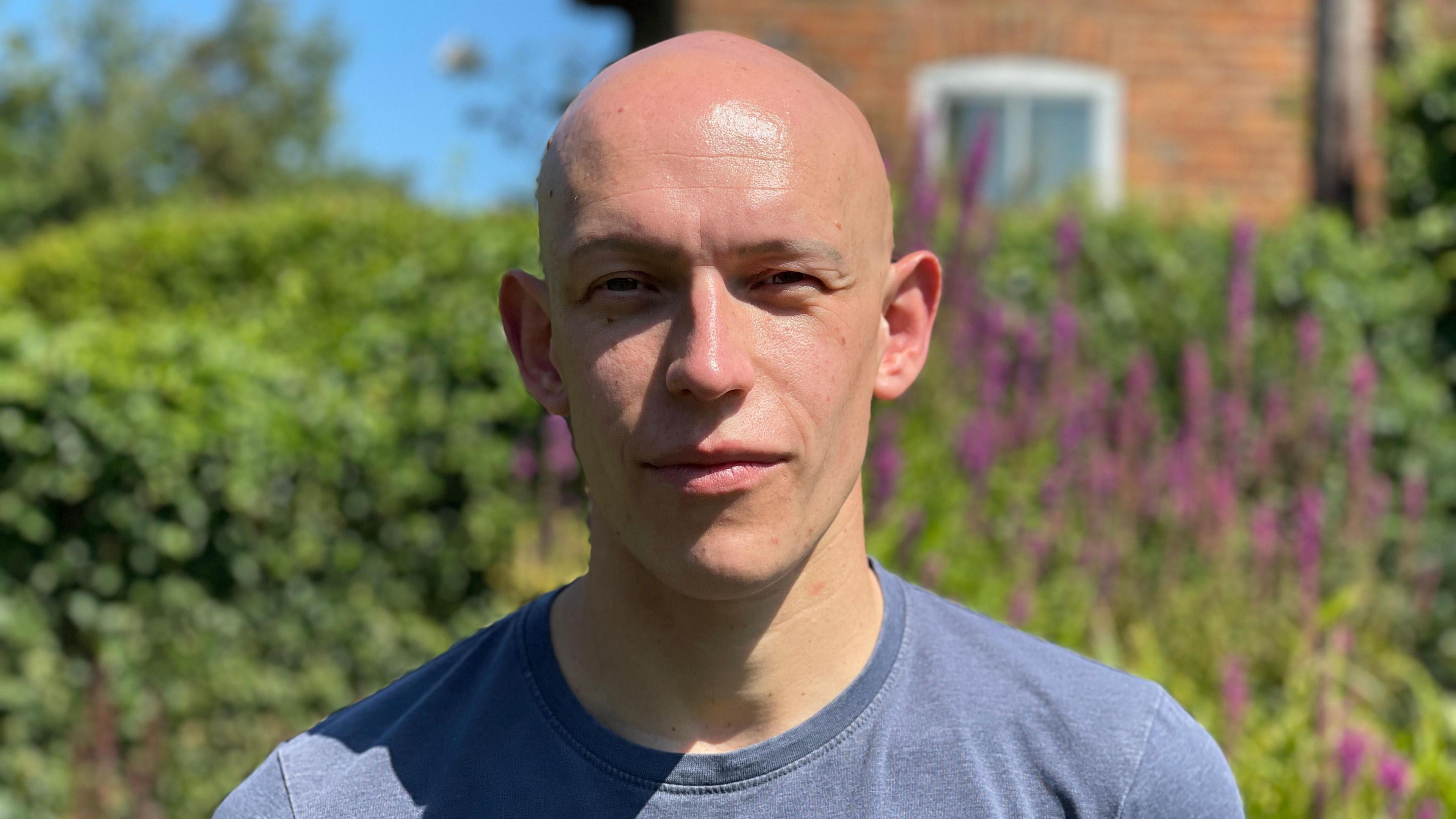Swimmers stop using rivers over E. coli levels

Volunteers collected samples from the River Tillingbourne and the River Wey in Guildford
- Published
A wild swimming group said it has been forced to stop using a river in Surrey over unsafe levels of E. coli.
Volunteers collected samples from the River Tillingbourne and the River Wey in Guildford to determine the quality of the water.
Swimmers Cathy Pyle and Kate Riley said the tests have shown the town's rivers have not been within safe limits for E. Coli every week they had been tested.
The Environment Agency said neither of the sites were designated swimming spots.
Ms Pyle set up a wild swimming group to improve participant’s mental health.
She said she would like to see the water quality improve at the group’s main spots – the River Tillingbourne at Shalford Mill and the River Wey, near Saint Catherine’s Hill,
“We've had to completely stop our swims here in the river,” she said.

The samples were processed at the Water Rangers Community Lab at Zero Carbon Guildford
The samples were processed at the Water Rangers Community Lab at Zero Carbon Guildford.
Its executive director, Kat Kavanagh, said the readings were “off the scale”.
“We would expect high figures after heavy rain but not this high,” she said.
“One of the biggest issues is we don't know what's causing this increase. It can be run off, it can be sewage, and it can be a combination.”
Ms Kavanagh urged the public and their dogs not to swim in the rivers when E. coli levels were high.

Samples were collected from the River Tillingbourne and the River Wey to determine water quality
The Environment Agency said bacterial coliforms in rivers were likely to increase after heavy rain due to increased run-off from roads and agricultural land.
“In terms of human health, we do monitor bacterial coliforms at designated bathing waters so that the public can understand the quality of water for swimming in those locations,” a spokesman said.
Thames Water said farming, industry, road runoff, wildlife and increasingly extreme weather also played a role in river health.
“As infrastructure ages and demand on it increases, more investment is needed across the entire sector.
"That’s why we’ve asked for increased investment in the next regulatory cycle between 2025-2030,” a spokesman added.
- Published31 July 2024
